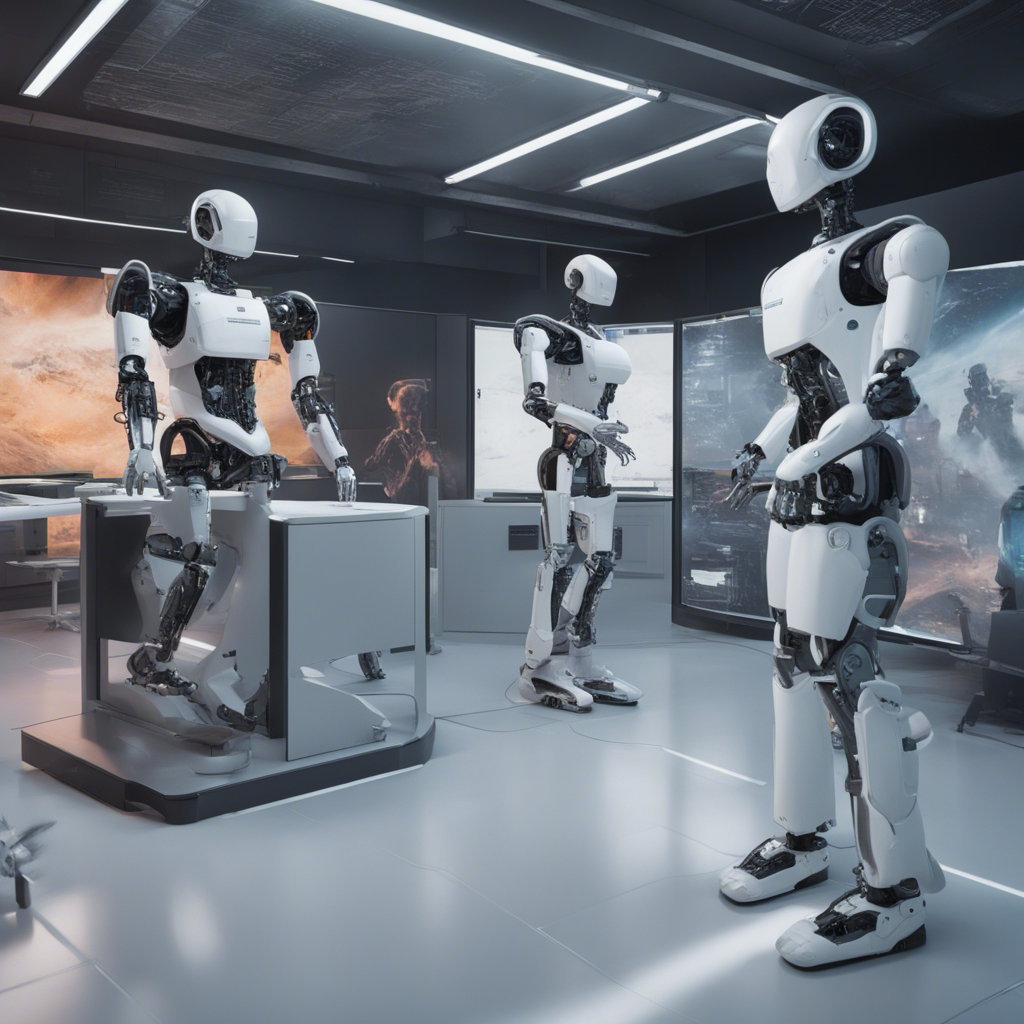
AI and Machine Learning Demystified Training for Beginners
In recent years, Artificial Intelligence (AI) and Machine Learning (ML) have become increasingly popular topics, sparking intrigue and curiosity among individuals from various backgrounds. Whether you are a business professional looking to enhance your company’s operations or someone simply interested in understanding these complex technologies, this blog post aims to provide a comprehensive and objective overview of AI and ML, specifically tailored for beginners.
Introduction to AI and Machine Learning
What is Artificial Intelligence (AI)?
Artificial Intelligence refers to the development of computer systems that are capable of performing tasks that typically require human intelligence. These tasks may include natural language processing, problem-solving, decision-making, learning, and more. AI encompasses a wide range of techniques and approaches, including Machine Learning.
What is Machine Learning (ML)?
Machine Learning is a subset of AI that focuses on creating systems that can learn and improve from experience, without being explicitly programmed. It involves training models on large datasets to make predictions or take actions based on patterns and statistical analysis. ML algorithms can be categorized as supervised, unsupervised, or reinforcement learning, each with its own applications and methodologies.
Importance of AI and Machine Learning
Impact on Industries
AI and ML have revolutionized various industries, bringing significant benefits and improvements. For example, in healthcare, AI-powered diagnostic systems can assist doctors in the early detection of diseases, leading to higher accuracy and faster treatment. In finance, ML algorithms can analyze vast amounts of data to detect fraudulent activities, making transactions more secure. Transportation, manufacturing, marketing, and many other sectors also leverage AI and ML for optimization, automation, and innovative solutions.
Enabling Advanced Technologies
AI and ML are at the forefront of driving advanced technologies like autonomous vehicles, natural language processing, computer vision, and personalized recommendations. These technologies rely on sophisticated ML models to parse and interpret complex data, enabling machines to understand and interact with the world as humans do.
Improved Decision-Making and Predictability
By analyzing vast amounts of data, AI and ML algorithms can assist organizations and individuals in making informed decisions. Predictive analytics can help businesses forecast demand, optimize inventory, and improve operational efficiency. ML models can also identify patterns and anomalies in data, leading to early detection of potential issues and improved predictive maintenance.
AI and Machine Learning Training for Beginners
Online Courses and Tutorials
For beginners eager to delve into the world of AI and ML, several online platforms offer comprehensive courses and tutorials. These resources are often designed to cater to individuals with little to no prior knowledge in the field. Websites like Coursera, Udemy, and edX provide a wide range of courses covering topics such as Introduction to AI, ML algorithms, Python programming for ML, and more. These platforms usually offer both free and paid courses, allowing learners to choose according to their budget and requirements.
Workshops and Bootcamps
Attending workshops and bootcamps is another effective way to gain hands-on experience in AI and ML. Many educational institutions, tech companies, and industry experts organize short-term programs that focus on practical applications and real-world scenarios. These sessions provide an opportunity to work on projects, engage with mentors, and collaborate with fellow learners, enabling a deeper understanding of AI and ML concepts.
Open Source Resources and Online Communities
The AI and ML community thrives on collaboration and knowledge-sharing. Various open-source resources, such as TensorFlow, PyTorch, and scikit-learn, provide libraries, frameworks, and tools for building ML models. Online communities like GitHub and Kaggle offer a platform for sharing code, discussing ideas, and participating in competitions. Participating in these communities fosters learning, encourages collaboration, and keeps learners updated with the latest developments in the field.
Conclusion
Artificial Intelligence and Machine Learning are transforming industries and enabling advanced technologies, opening up a world of opportunities for individuals and organizations alike. By embarking on a training journey, beginners can gain a foundational knowledge of AI and ML, allowing them to contribute to innovative projects, make data-driven decisions, and stay ahead in an increasingly digitally-driven world. With the plethora of online resources, courses, workshops, and a vibrant AI community, there has never been a better time to demystify AI and Machine Learning for beginners.
Note: This blog post is intended to provide an overview and introduction to AI and Machine Learning training for beginners. For a more comprehensive dive into specific topics or advanced techniques, further study and exploration are encouraged.
References:
- Russell, S. J., & Norvig, P. (2016). Artificial Intelligence: A Modern Approach. Pearson.
- Bishop, C. M. (2006). Pattern Recognition and Machine Learning. Springer.



